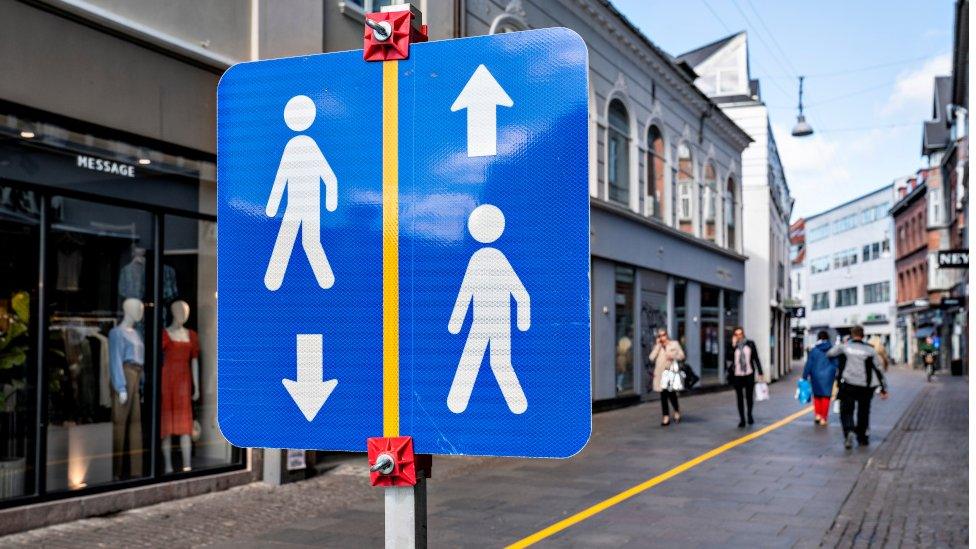Coronavirus: 'It's safe to come back to Chinatown'
- Published
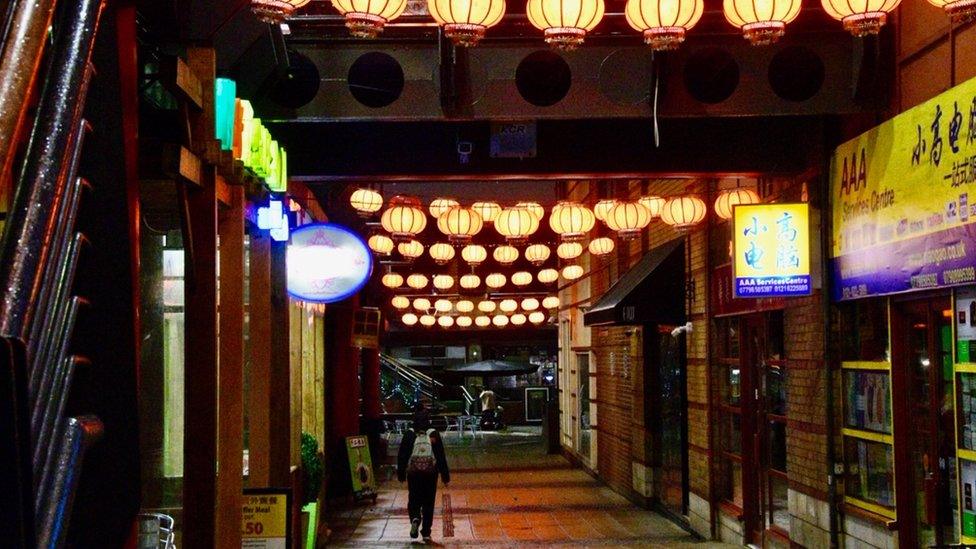
Chinatown in Birmingham has been deserted during lockdown
The Chinese Quarters of England have been among the hardest hit throughout lockdown, with dozens of family-run businesses forced to close or rebrand, as well as experiencing hate crimes linked to coronavirus. The BBC went to Chinatown in Birmingham to see how it plans to bounce back on 4 July.
As the vibrant dragon weaved its way through the crowds - and torrential rain - to mark the Year of the Rat in January, the annual celebrations in Birmingham were noticeably quiet.
"It was the Chinese community that stayed away," says organiser James Wong. "They'd seen what was happening in Wuhan and saw videos of people in body bags on social media. A lot of people thought it was too dangerous to go out."
At the time, words like lockdown, furloughed and shielding weren't part of everyone's day-to-day vocabulary. But many Chinese people living in the UK had already begun self-isolating.
Panic-buying set in at Chinese supermarkets in the city weeks before the likes of Tesco and Sainsbury's were cleared of toilet roll, hand gel and pasta.
"People were buying 10, 20 bags of rice - you don't get through that in a year," says Mr Wong. "It was like the end of the world."

Fears over coronavirus kept the Chinese community away from the New Year celebrations in January
Well before Boris Johnson ordered restaurants and cafes to close, businesses in Chinatown in Birmingham had already started to lose much of their regular custom. Almost five months on, Mr Wong and fellow restaurant owners are considering how to entice people back when emotions - and fears - are still running high.
"The Chinese people are still scared of catching the virus," he says. "They experienced Sars in 2002. I saw one woman recently who had a face visor on and two masks as she walked around taking pictures with a selfie stick. I was thinking 'do you think you are going somewhere radioactive'?"
And then there is the fear that racism and xenophobia could keep people away because of China's role in the pandemic. "There is definitely a stigma," Mr Wong says. "But Birmingham is very multicultural. If you enjoy Chinese food, you will come out and eat it."
The businessman owns Chung Ying - the restaurant named after his father (Chung) and mother (Ying) and which was the first Chinese restaurant to arrive in the area almost 40 years ago.
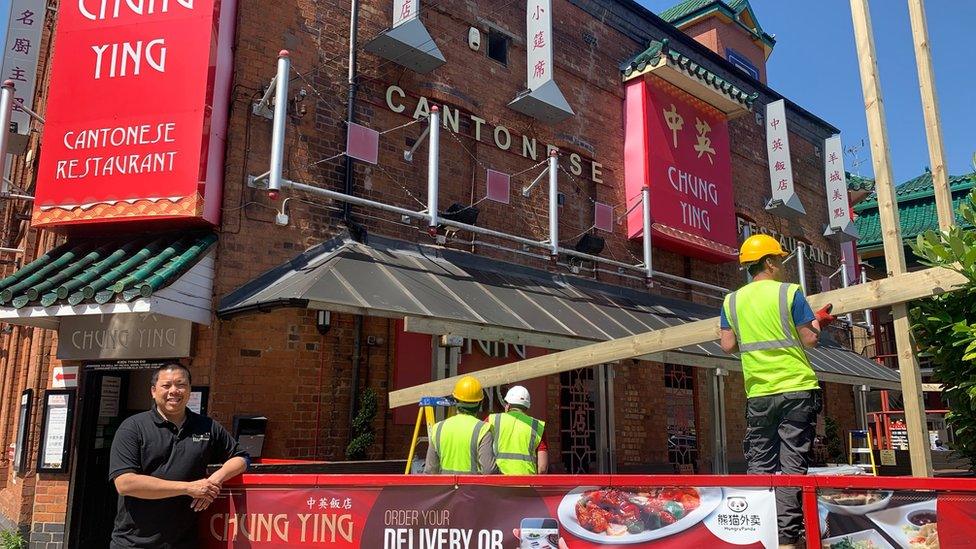
The new normal at Chung Ying will see diners eating outside in a new area that will have artificial grass
He is getting ready to open on 4 July. Capacity inside will be down 60% as he's decided to place tables 3m apart to allow for people moving around. Outside, builders are erecting a wooden roof on a new outdoor eating area.
There will also be screened-off areas, a temperature scanner, the ability to order electronically or use disposable menus, and staff will wear face shields.
"I prefer them to masks," says Mr Wong. "You can see people talking, smiling - you can relate to a human."
Picnic benches that were outside will be replaced with proper tables. "It's very important to me that we keep the experience of eating out," he adds.
Those benches will instead be set out on the pedestrianised area in nearby Ladywell Walk for people to dine al fresco. This is good news for Jeremy Mun, manager of small family restaurant Malaysian Delight.
It shut for "three to four weeks" at the start of lockdown. "We were a bit worried about the virus," says Mr Mun. "But after we realised it was not critical, we opened again."
Rebranding as a takeaway and delivery service was necessary to survive, although with some staff too scared to return, Mr Mun has been back cooking in the kitchen for the first time in years.
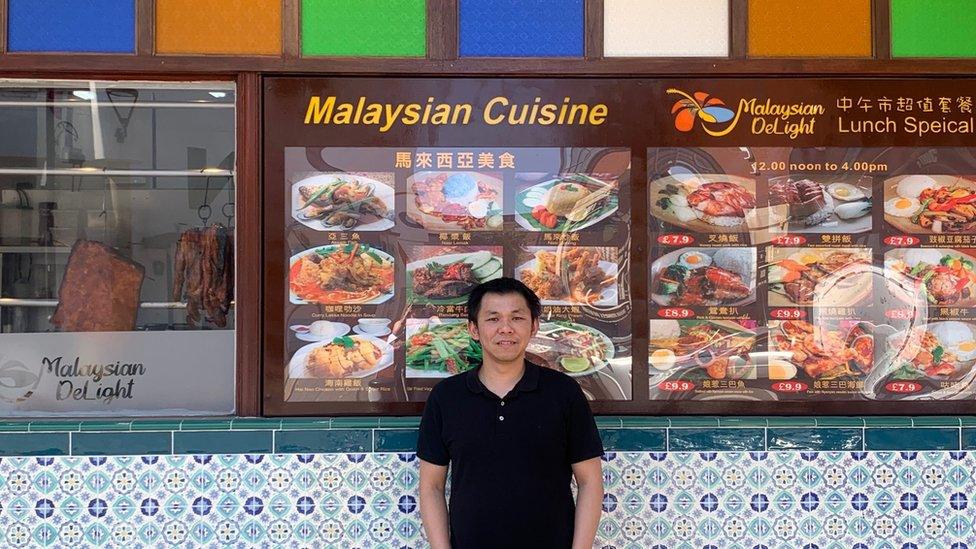
Jeremy Mun is now at the helm of the family business and deciding how to navigate post-lockdown
He's now considering how the business will operate under social-distancing measures.
Slashing the 2m rule to 1m-plus has been "a very big step for us" says Mr Mun. "We have 20 tables, we were thinking we'd cut it to 10, or even have a partition to block parts off. We have some ideas and we need to think about what's right. But we just need a bit more time."
Supermarket Wing Yip supplies the city's restaurant and takeaway industry. Brian Yip has been working there since he was 14, when his father "kicked him out of bed one summer holiday" and told him he was needed at the family business.
Now the manager, he says his custom "fell off a cliff" at first, and he cut his opening hours right back. But as more businesses have started to offer takeaways and deliveries, it is fully open again.
Mr Yip is cautious about the future, however. "They say it takes 90 days to build a habit - will people still want to go out?
"Independent restaurants and takeaways are the backbone of the hospitality industry. Hopefully people will start to come back in time and confidence will build up."
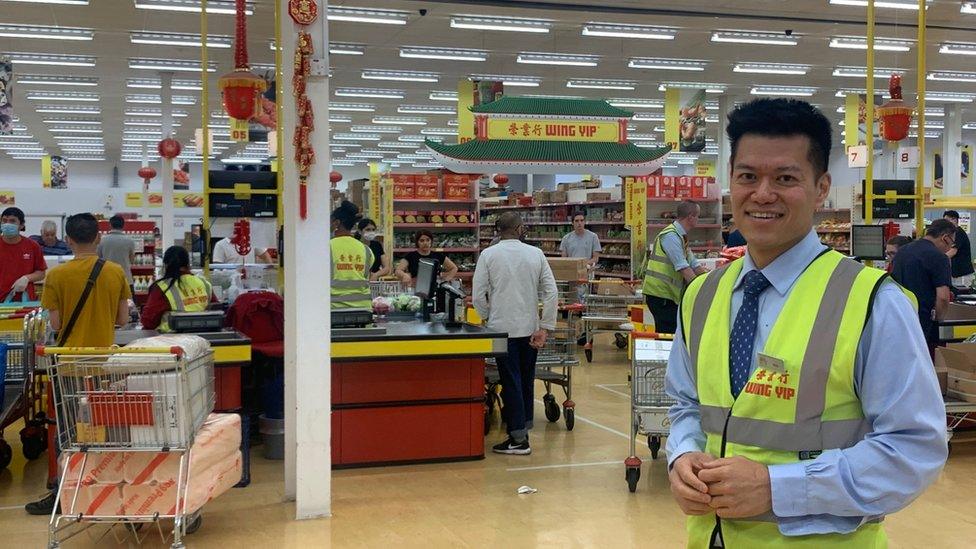
Manager Brian Yip says custom "fell off a cliff" at Wing Yip, which is based in Nechells about three miles from Chinatown in the city centre
Julia Robinson, manager of Southside Business Improvement District, which covers Chinatown and the Gay Quarter, is hopeful they will.
Eighteen of the area's 80-plus businesses have signalled they will reopen for a "soft launch" on 4 July so far.
"Everyone who is planning to open is being really sensible," she says. "We are lobbying the council to allow us to close the streets and allow people to eat and drink outside, so that they can circulate really freely.
"We're going for a relaxed early-evening experience - the new normal is actually very exciting."
For the area as a whole, there is an uphill struggle ahead. One restaurant, the Green Room, which for years served customers of the Birmingham Hippodrome, opposite, has stated it will not be reopening.
"We fear there's going to be more," Ms Robinson says. "There's been two quarters of rent and service charges for businesses that have not had any income whatsoever. Fifteen per cent of our businesses could not get any government help at all. It's going to be very, very challenging."
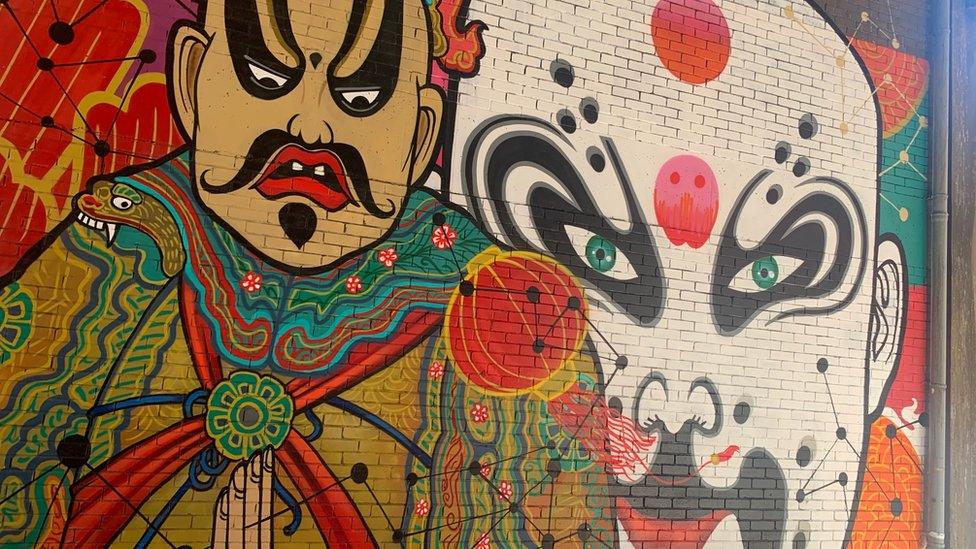
About 25% of businesses in and around Chinatown are reopening on 4 July - with more expected to join them
However, she adds that "if anyone can do it, we can do it".
"We are family businesses, Brummie families - we're not big chains. We really need the public to come and stand behind them and choose the independents."
For Mr Wong, reassurance is key to enticing customers back.
"We want to inspire confidence in people to start enjoying their normal lives," he says.
"We want people to know that it is safe to come back to Chinatown."

A SIMPLE GUIDE: How do I protect myself?
IMPACT: What the virus does to the body
RECOVERY: How long does it take?
LOCKDOWN: How can we lift restrictions?
ENDGAME: How do we get out of this mess?


Follow BBC West Midlands on Facebook, external, Twitter, external and Instagram, external. Send your story ideas to: newsonline.westmidlands@bbc.co.uk , external
- Published23 June 2020
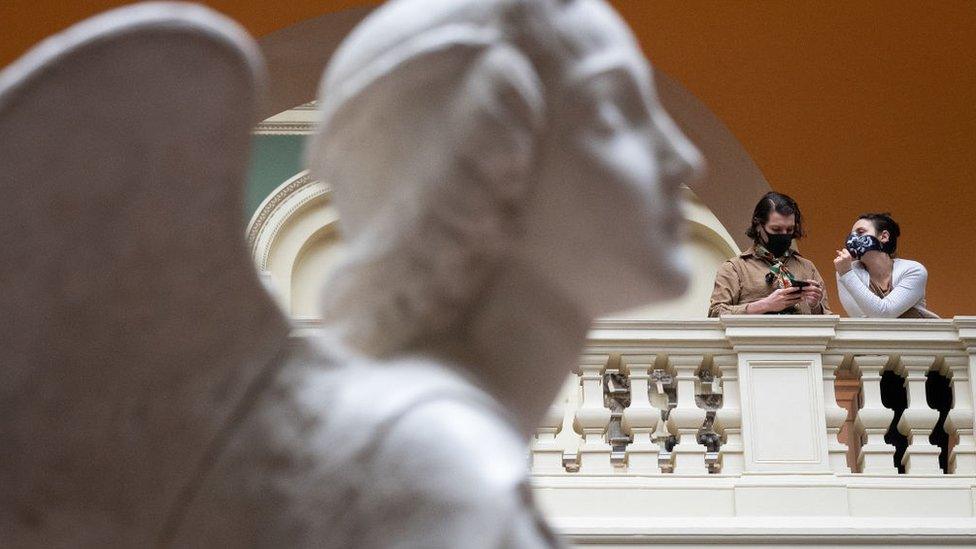
- Published23 June 2020
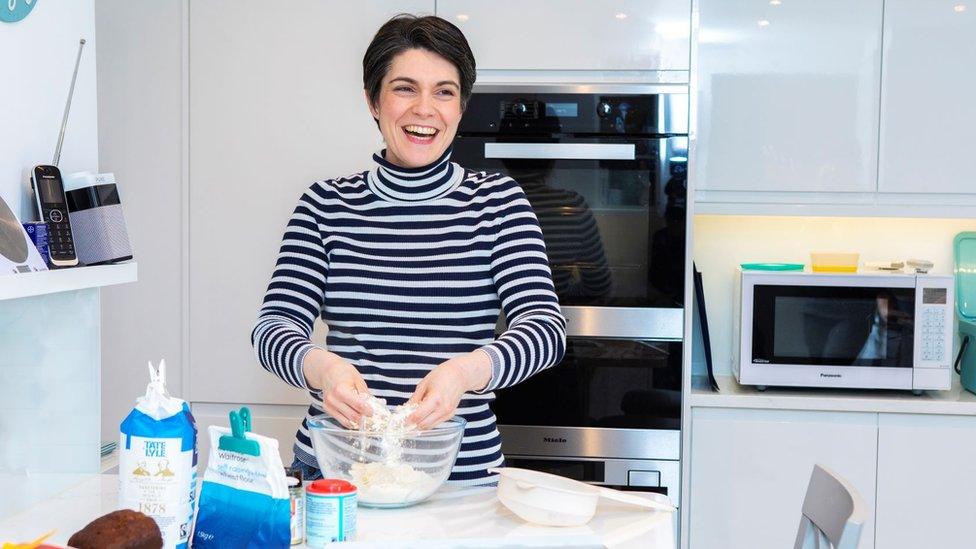
- Published23 June 2020

- Published2 July 2020
